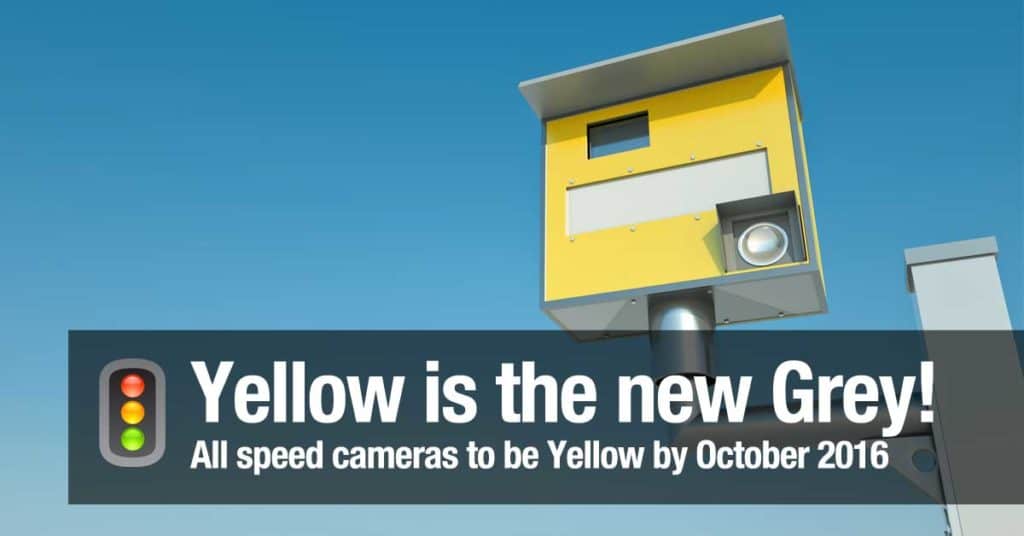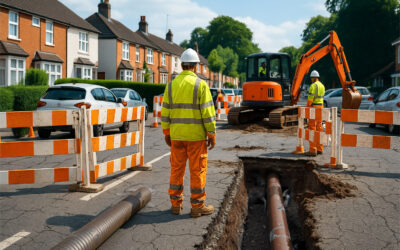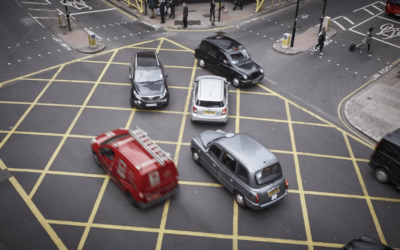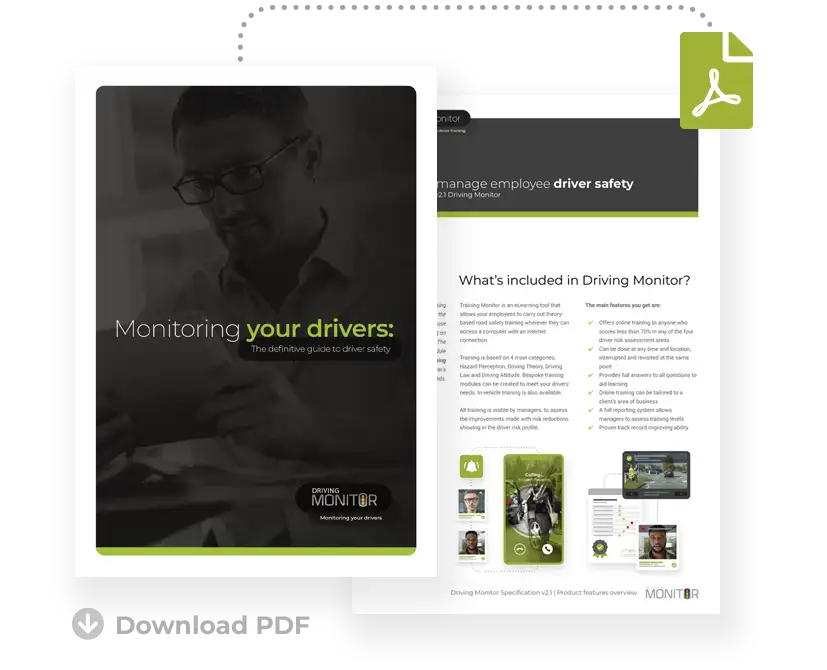End of the road for grey speed cameras – all cameras to be Yellow by October 2016

The Government have announced changes to the UK speeding camera network, first seen on the gov.co.uk website here:
https://www.gov.uk/government/news/end-of-the-road-for-grey-speed-cameras
- government announces common sense approach to speed cameras on motorways
- working speed cameras to be yellow by October 2016
- move follows a review of cameras to ensure they are visible and motorists are not unfairly penalised
Changes to speed cameras by October 2016
Every working speed camera on the strategic road network will be yellow within a year, the government has announced today, 14 November 2015.
Ministers ordered a review of speed camera policy on motorways earlier this year and Highways England has today confirmed their plan to increase the visibility of all speed cameras on the network.
Transport Secretary Patrick McLoughlin said:
We are on the side of honest motorists. I’ve always been clear that cameras should be visible and get used for safety rather than revenue raising. This move is about applying common sense to our roads. Speed cameras should make journeys safer rather than lead to dangerous braking. I’m delighted Highways England have agreed to meet our timetable to achieve this.
There are approximately 200 camera sites on England’s motorways, some of which contain multiple cameras. Existing guidelines already make clear that where cameras are used on the strategic road network signs must be put up to alert drivers. This latest move will ensure maximum visibility of the cameras themselves.
The majority of colour changes will take place during standard renewal of speed camera units alongside other planned work to minimise the cost. Units which are not due to be upgraded within this time frame will be made yellow.
Highways England will be monitoring its camera sites to address any impact the change in colour has for drivers.
Highways England Chief Executive Jim O’Sullivan said:
We also are on the side of common sense, and aim to provide a good service to road users. While we understand speed cameras are not popular, they play a valuable role in enhancing safety, smoothing traffic flow and reducing congestion for millions of motorists who use our roads. We use cameras for safety and traffic management only when other more popular solutions like engineering are not adequate to tackle particular problems on our network.
Edmund King, AA president, said:
This is a common sense move and something we have campaigned for. Our extensive AA/Populus surveys show that over 70% of drivers accept the use of speed cameras and it is important that the level of trust and transparency is maintained. Cameras are most effective when drivers slow down and being visible should make them more effective. Motorways are our safest roads and having visible cameras should show that the intention is to slow traffic and safe lives rather than generate cash. Drivers will be delighted by this move.
The government has also taken action at a local level. Local authorities and the police are required to publish information on the impact of speed cameras on road safety, so that they can be held accountable locally. Clear guidance for local authorities on speed cameras states that fixed speed camera housings located within an area of street or highway lighting should be coloured yellow either by painting both the front and back of the housing or covering both the front and back of the housing with retro-reflective sheeting. In an area not covered by street or highway lighting, the speed camera housing should be treated with yellow retro-reflective sheeting.
Grey digital cameras were first introduced as part of active traffic management on the M42 in 2006.










